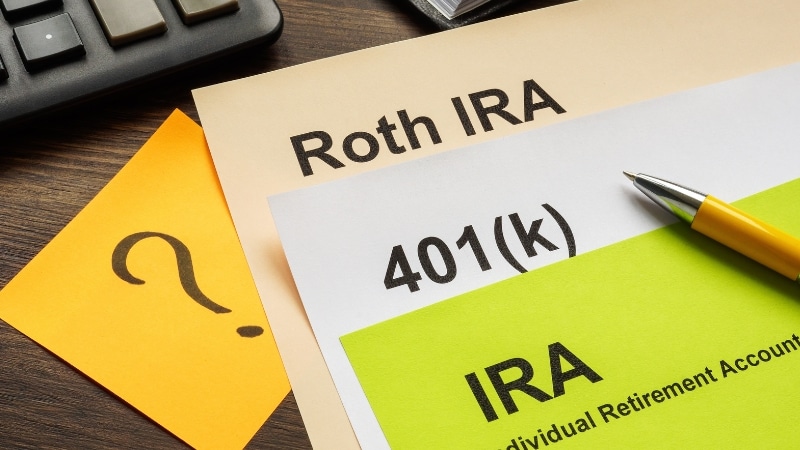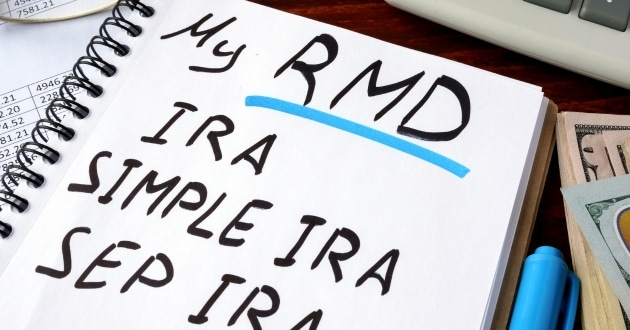Best IRA accounts are essential for individuals seeking to secure their financial future through effective retirement planning. Individual Retirement Accounts (IRAs) offer a variety of benefits, including tax advantages and a wide range of investment options. Choosing the right IRA can make a significant difference in the growth and stability of your retirement savings.
When searching for the best IRA accounts, it’s important to consider factors such as fees, investment choices, and account features. Low fees can help maximize your investment returns, while a diverse selection of investment options allows you to tailor your portfolio to your risk tolerance and financial goals.
Additionally, features like easy account management and robust customer service can enhance your overall experience.
Understanding IRA Accounts

Firstly, it’s important to understand what an IRA is. An IRA is a retirement savings account that offers tax advantages to encourage people to save for retirement. There are different types of IRAs, each with its own set of rules and benefits.
Types of IRA Accounts (Best IRA accounts)
There are several types of IRAs, each catering to different needs and financial situations:
- Traditional IRA: Contributions are typically tax-deductible, and the investments grow tax-deferred until retirement.
- Roth IRA: Contributions are made with after-tax dollars, but withdrawals in retirement are tax-free.
- SEP IRA: Simplified Employee Pension IRAs are designed for self-employed individuals and small business owners, allowing them to make significant contributions.
- SIMPLE IRA: Savings Incentive Match Plan for Employees IRAs are ideal for small businesses with fewer than 100 employees, offering both employer and employee contributions.
Integrating IRA Accounts with 401(k) Retirement Plans
For a comprehensive retirement strategy, it’s beneficial to understand how to integrate IRA accounts with 401(k) retirement plans. Combining these two types of accounts can maximize your savings and offer diverse tax advantages.
By strategically managing contributions and distributions across both accounts, you can tailor a retirement plan that fits your financial goals and provides flexibility in retirement. This integration allows you to take advantage of the higher contribution limits of 401(k) plans while enjoying the investment flexibility and potential tax benefits of IRAs.
Benefits of the Best IRA Accounts
1. Tax Advantages
One of the most significant benefits of the best IRA accounts is the tax advantage they provide. Traditional IRAs offer tax-deductible contributions, lowering your taxable income for the year. Roth IRAs, on the other hand, provide tax-free withdrawals in retirement, which can be beneficial if you expect to be in a higher tax bracket later in life.
2. Flexible Investment Options
Moreover, the best IRA accounts offer a wide range of investment options. You can invest in stocks, bonds, mutual funds, ETFs, and other assets, allowing you to diversify your portfolio according to your risk tolerance and financial goals.
3. Contribution Limits (Best IRA accounts)
It’s also important to note the contribution limits for IRAs. For 2024, the maximum contribution limit for both Traditional and Roth IRAs is $6,000, with an additional $1,000 catch-up contribution allowed for individuals aged 50 and older.
How to Choose the Best IRA Account
1. Assess Your Financial Goals
Firstly, assess your financial goals. Consider whether you prefer the immediate tax benefits of a Traditional IRA or the long-term tax advantages of a Roth IRA. Your current income, tax situation, and expected future earnings should play a role in this decision.
2. Compare Fees and Services
Additionally, compare the fees and services of different IRA providers. Look for accounts with low fees and a broad range of investment options. Some providers may offer additional services such as financial planning, investment advice, and customer support, which can be valuable.
3. Consider the Provider’s Reputation (Best IRA accounts)
Furthermore, consider the reputation of the IRA provider. Look for providers with a strong track record, excellent customer service, and positive reviews from other investors. Established providers are more likely to offer reliable and secure services.
Best IRA Accounts for Different Investment Strategies
Choosing the best IRA accounts often depends on your investment strategy. For those who prefer a hands-on approach, self-directed IRAs offer the flexibility to invest in a variety of assets, including real estate and precious metals. For investors who prefer a more passive approach, robo-advisors provide automated portfolio management at a lower cost. Understanding your investment style and choosing an IRA that aligns with your strategy is crucial for maximizing returns.
How to Maximize Your Returns with the Best IRA Accounts
Maximizing returns with the best IRA accounts involves more than just choosing the right provider. It’s important to regularly review and rebalance your portfolio, take advantage of any available employer matching contributions, and stay informed about changes in tax laws that could affect your IRA. Additionally, diversifying your investments within your IRA can help spread risk and increase potential returns over time.
Comparing the Best IRA Accounts for Self-Employed Individuals
Self-employed individuals have unique retirement planning needs, and the best IRA accounts for them often include SEP IRAs and SIMPLE IRAs. These accounts offer higher contribution limits than traditional IRAs, making them ideal for business owners who want to maximize their retirement savings. Comparing the features, benefits, and contribution limits of SEP and SIMPLE IRAs can help self-employed individuals choose the best option for their financial future.
Frequently Asked Questions About the Best IRA Accounts
1. What is the Difference Between a Traditional IRA and a Roth IRA?
The main difference is in the tax treatment. Traditional IRA contributions are tax-deductible, but withdrawals are taxed. Roth IRA contributions are made with after-tax dollars, but withdrawals in retirement are tax-free.
2. Can I Have Multiple IRA Accounts?
Yes, you can have multiple IRA accounts. However, the total contributions to all your IRAs cannot exceed the annual limit set by the IRS.
3. What Happens If I Withdraw Money from My IRA Early?
Withdrawing money from your IRA before age 59½ may result in a 10% early withdrawal penalty, in addition to regular income tax. However, there are some exceptions for specific situations, such as first-time home purchases and education expenses.
4. How Do I Roll Over a 401(k) to an IRA?
To roll over a 401(k) to an IRA, you need to open an IRA account and request a direct rollover from your 401(k) plan administrator. This process allows you to transfer your retirement savings without incurring taxes or penalties.
5. Are There Income Limits for Contributing to a Roth IRA?
Yes, there are income limits for contributing to a Roth IRA. For 2024, the ability to contribute to a Roth IRA phases out for single filers with an adjusted gross income (AGI) between $140,000 and $155,000, and for married couples filing jointly with an AGI between $208,000 and $218,000.
6. How Often Can I Change Investments in My IRA?
You can change investments in your IRA as often as you like. However, frequent trading may incur transaction fees and can impact your investment returns. It’s generally advisable to have a long-term investment strategy.
Conclusion
In conclusion, best IRA accounts provide a powerful tool for securing your retirement. By understanding the different types of IRAs, their benefits, and how to choose the right account, you can make informed decisions that align with your financial goals. Whether you prefer the tax advantages of a Traditional IRA or the future tax-free income of a Roth IRA, investing in the best IRA accounts can help you build a secure and comfortable retirement.



